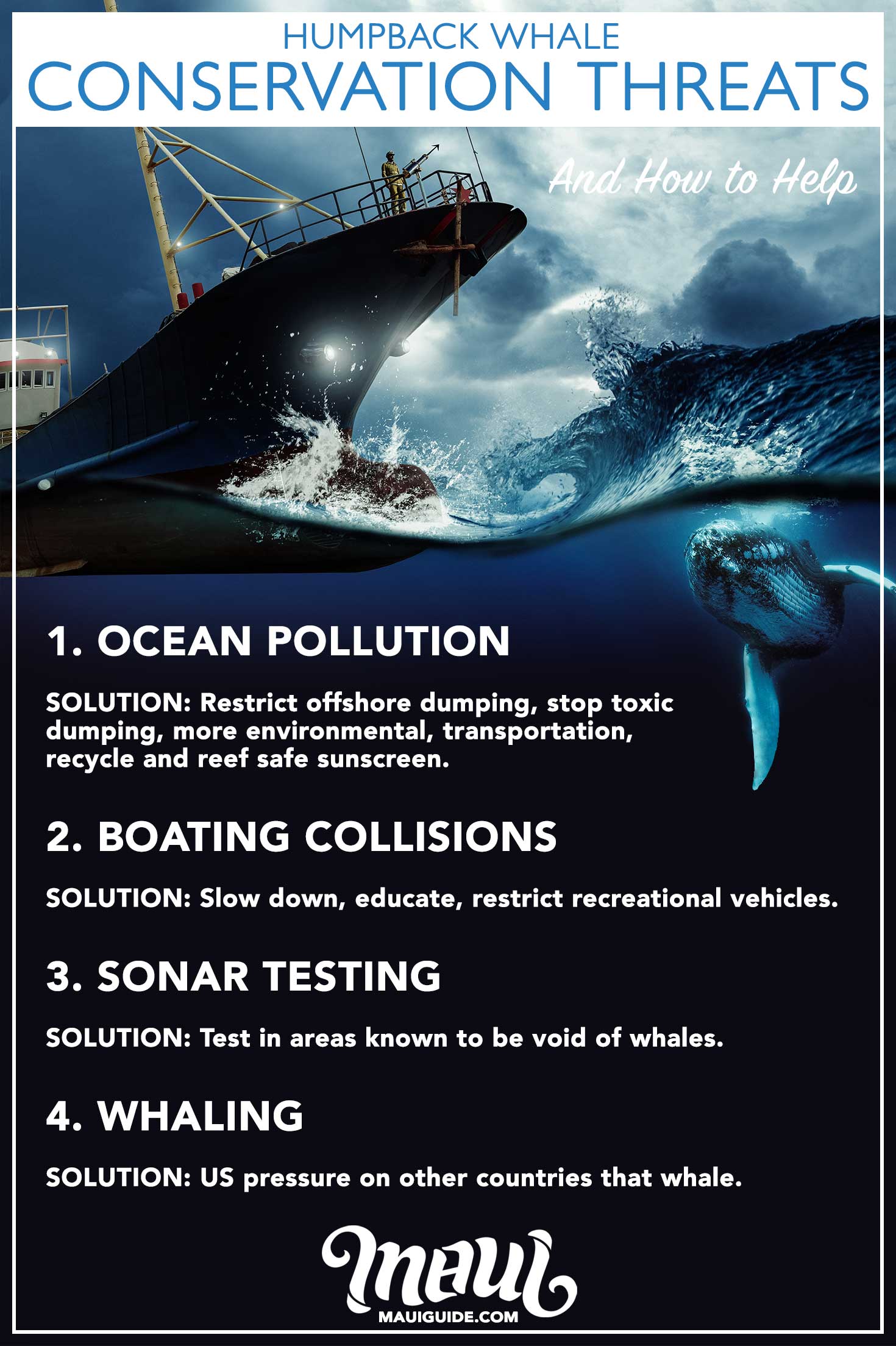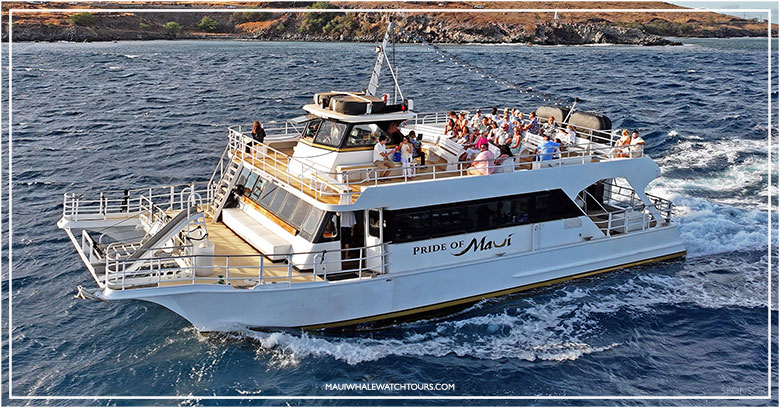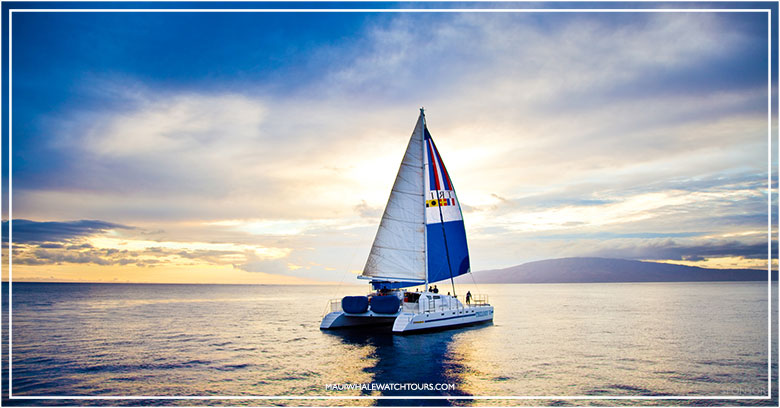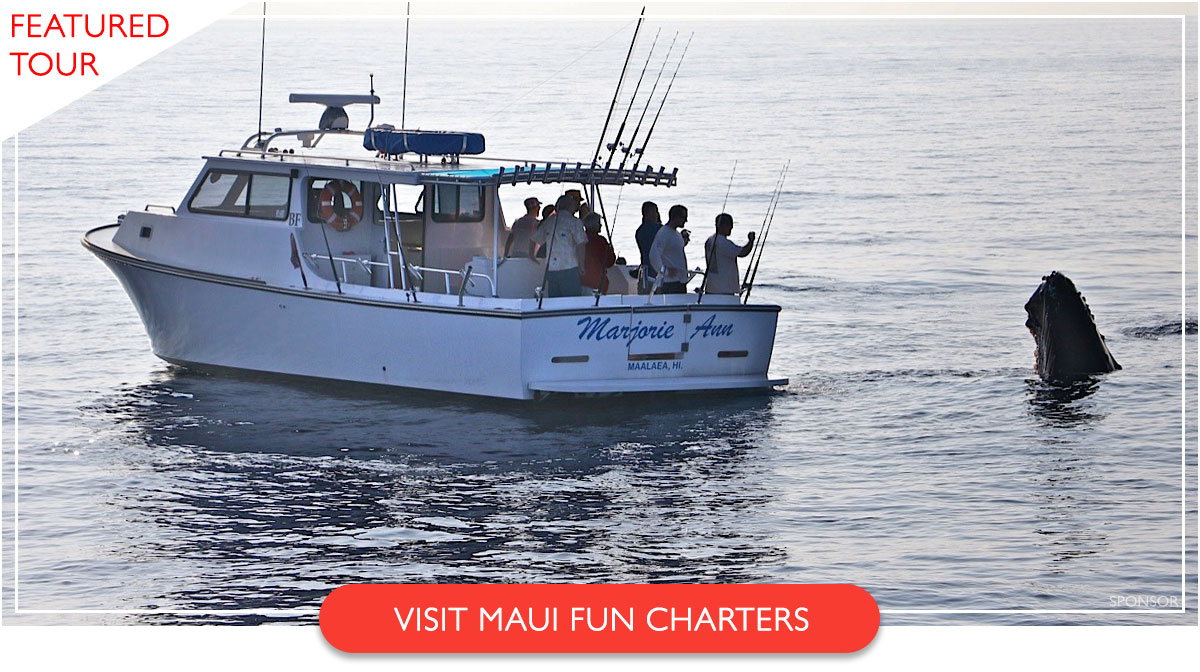Kokua
The act of taking care of others and one’s surroundings without expecting personal benefit.
Whale Conservation Threats & Solutions
Kokua is often used by the Hawaiians to describe respectfully taking care of one’s surroundings and each other. An environment of mutual courtesy and consciousness embodies kokua. Hawaiians teach their children, as well as outsiders, the importance of living a lifestyle filled with kokua and aloha. Sadly, both visitors and locals alike are losing this sense of awareness, which is present in all aspects of our lives. Each and every one of us needs to strive towards respecting the environment and each other while leaving the least obtrusive negative impact on our surroundings.
The following are just a few of the detrimental problems that our humpback whales face. We’ve paired each issue with a possible solution.
1. Ocean Pollution
The ocean is being polluted by cruise ships, cargo ships, as well as some passenger boats that dump their sewage offshore. The polluted waters make for an unsavory place to mate and give birth for our humpback whales, as well as destroy our reefs and other sea life. Ocean vessels aren’t the only things polluting our waters. Run off from highways, and drains from land sweep pollutants into our ocean. The effects have been widely noticed on Maui, especially by those that have been in the water 10-15 years ago and again today. The difference is staggering. If we want our visitors from the North to continue to enjoy our waters, we need to do quite a bit of clean up and regular maintenance of our ocean.

Pollution Solutions
a. Restrict all offshore dumping. This would mandate that all boats and ships have their sewage extracted by professionals in the harbor for adequate disposal.
b. Stop all dumping of toxic items in our storm drains. This is something that most people know, though we still see it being done.
c. Use more environmentally friendly transportation. This can be done in many ways. Using public transportation, car-pooling, hybrid vehicles, biking, etc. Another way to cut down on the impact of your vehicle is to regularly check your fluids and eliminate all leaks. After each rain, leaking car fluids are swept from our roads into our oceans. This is evident by the brown run-off line visible from shore after each rain.
d. Recycle. The less trash we produce, the less of it will be found in the ocean.
e. Put on sunscreen AFTER going in the water. Every time you apply oils before entering the water, you leave a mini oil spill. Multiply this by 8 million visitors per year, and you have a significant amount of unnatural oils in the water. For those worried about skin-cancer (of whom everyone should be) use natural reef-safe sunblocks, and limit your exposure.
2. Boating Collisions
Every year in Maui waters, at least a few whales are struck by vessels. Boats are very hard to stop once a whale is sighted and collisions can be fatal. On larger vessels, sometimes these whale collisions go without notice.
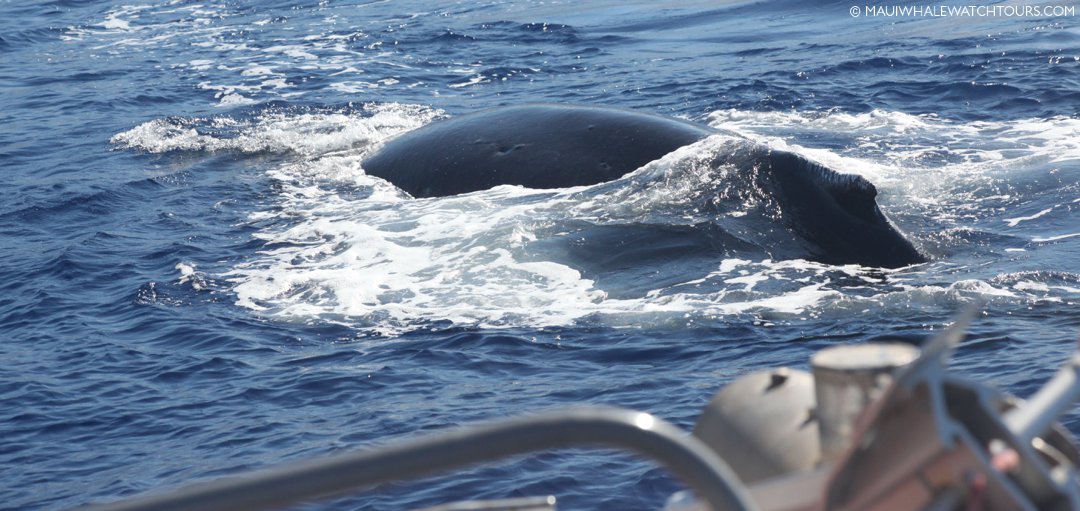
Boating Collision Solutions
a. Slow down! Laws need to be passed and enforced to keep all vessels at a much slower pace. Many boats are allowed to travel at speeds that are not appropriate for avoiding humpback whales. If a whale is just below the surface, it can still be struck while remaining invisible to the eye.
b. Recreational water vehicles should be restricted for a longer period of time. Right now whale season runs from December 15th to May 15th. Whales are often seen before and after this period. Parasailing and jet skis run from around May 15th to December 15th.
3. Military Sonar Testing
The military tests sonar in our waters that can deafen and permanently harm our whales. This affects everything from their advanced communication to their navigational skills.
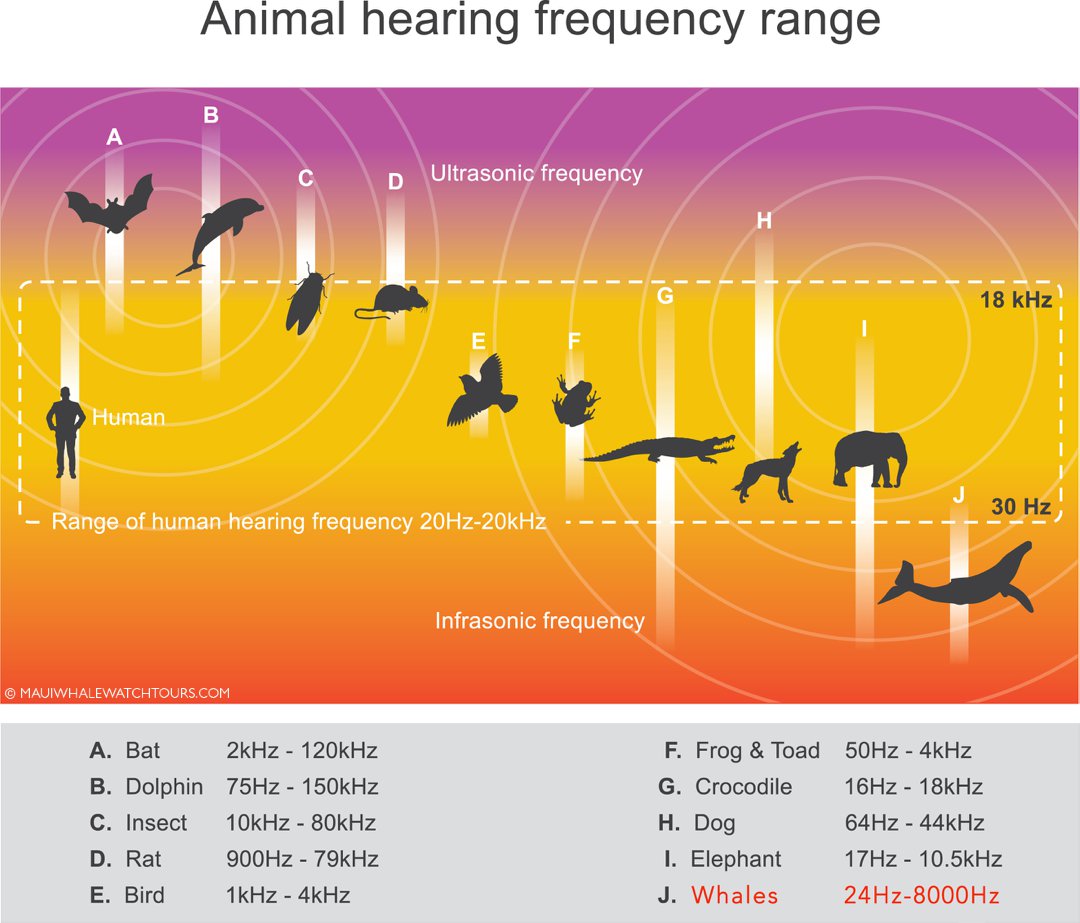
Sonar Solution
a. Only test in waters void of any whale life. They can run tests out of season, or not at all. Sonar testing could possibly harm other types of life as well. Learn more about the harmful effects of Sonar on Whales and recent Protests in Hawaii.
4. Whaling
Though it doesn’t happen in our waters, just outside of American territories, whales are killed for their oils and meat. This is a common way of life for many of our nearby Asian countries. Humpback whales, like all whales, are at risk of becoming extinct and need to be protected in all waters.
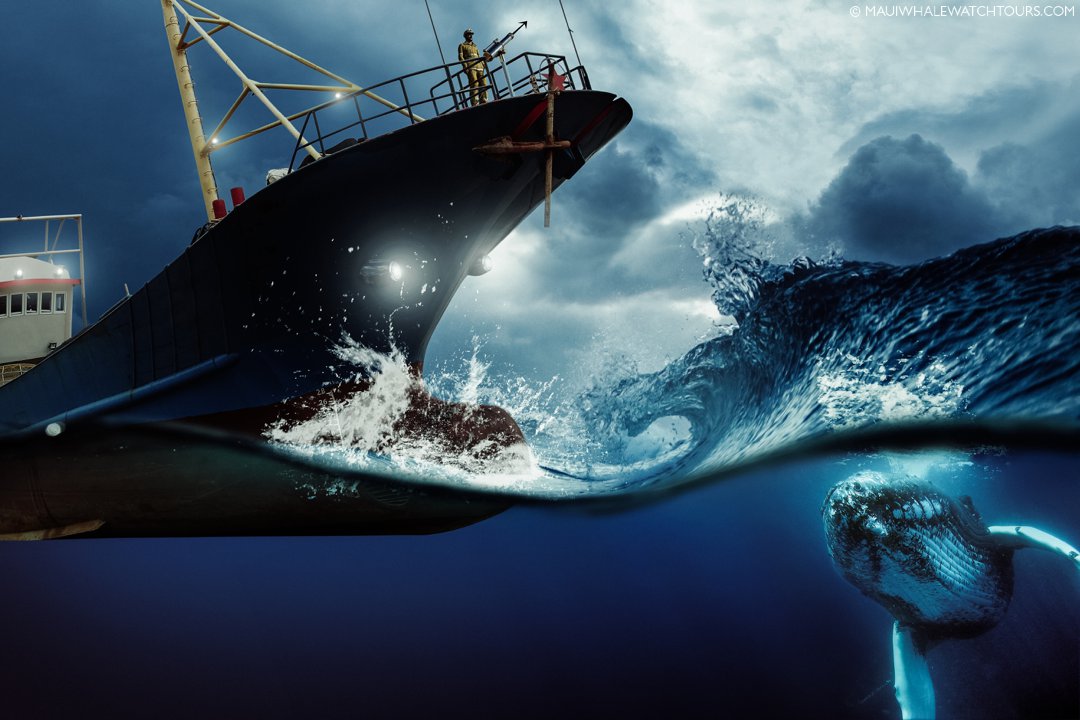
Whaling Solutions
a. The United States needs to put pressure on other countries to stop whaling or to restrict the whaling to conservative numbers. Whales are a pivotal part of our ecosystem. Learn more about the Whale Slaying and Green Peace’s Stand.
How You Can Help Right NOW!
It’s up to each and every person to make the changes necessary for Humpback Whales to survive. In doing so, we’ll ensure our own survival by making steps towards less human impact on our delicate environment. You can support one or all of the following organizations with a modest donation or by signing a petition.
Ocean Alliance – Donate for research and educational programs
National Wildlife Federation – Sign the Endangered Species Act Legacy Pledge
Pride of Maui
The Pride of Maui is a stable, spacious catamaran with open decks for incredible views. Naturalists on board share insights about humpback behavior as you watch for breaches, tail slaps, and mothers with calves. With plenty of room, shade, and fresh meals, it’s a comfortable and family-friendly way to whale watch.
Trilogy Excursions
Trilogy has been hosting Maui visitors for over 40 years, and the knowledgeable crew and spacious catamarans make for an informative and comfortable day on the water.
